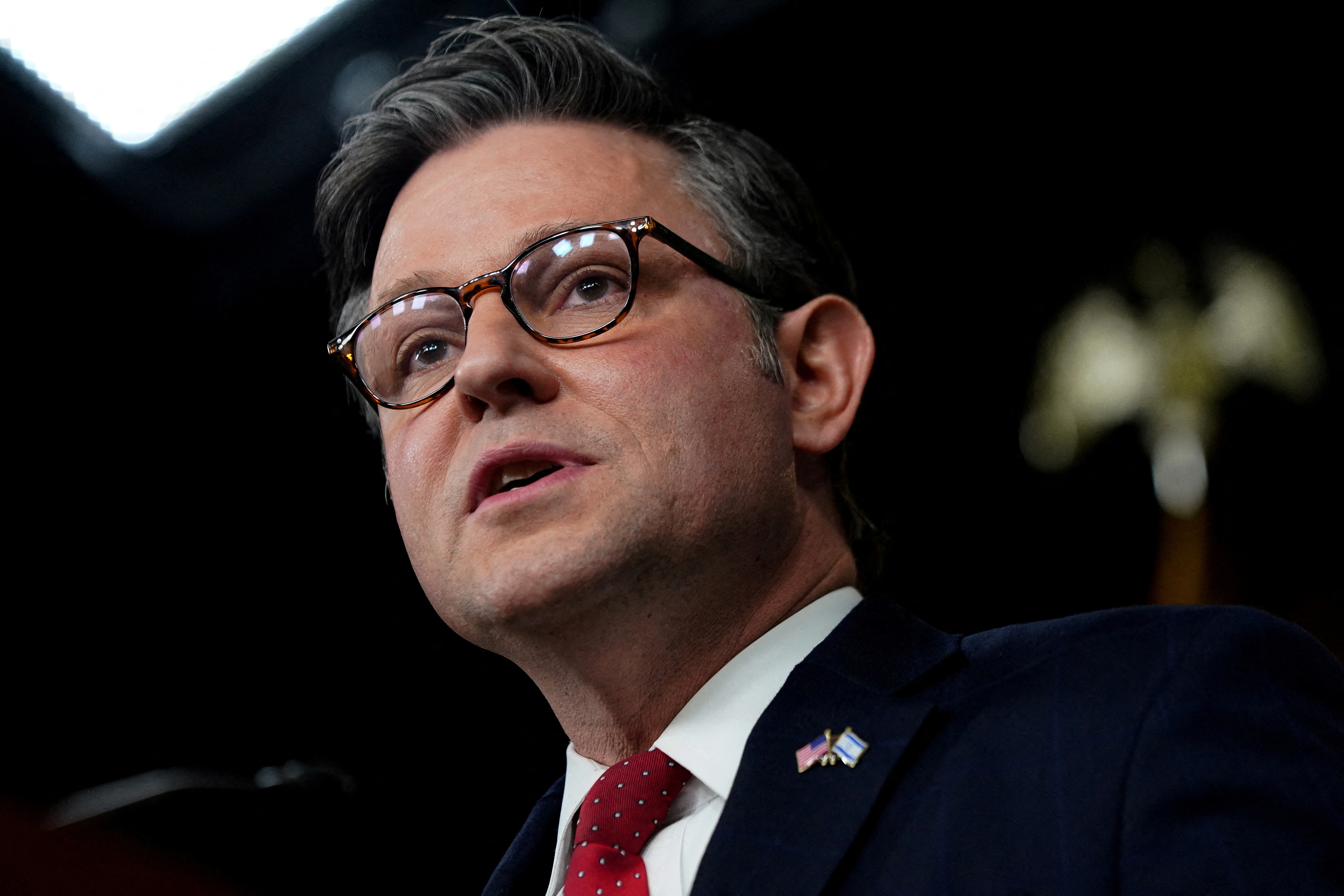
U.S. House Speaker Mike Johnson (R-LA) speaks during a press conference on Capitol Hill in Washington, U.S., November 14, 2023. REUTERS/Elizabeth Frantz/File Photo Acquire Licensing Rights
WASHINGTON, Dec 5 (Reuters) – Ukrainian President Volodymyr Zelenskiy canceled plans to appeal directly to U.S. lawmakers for new aid on Tuesday, as a partisan battle over immigration policy threatened to derail President Joe Biden’s request for billions of dollars for Kyiv’s fight against Russia.
Republicans and Biden’s fellow Democrats in the Senate and House of Representatives have been debating for weeks over Biden’s October request that Congress approve $106 billion for Ukraine, Israel, security at the U.S. border with Mexico and U.S. interests in the Indo-Pacific.
House Speaker Mike Johnson, a Republican, said funds for Ukraine, which has been fighting a full-scale invasion by Russia since February 2022, must be tied to “transformative change” in U.S. immigration policy.
On Tuesday, Senate Democrats unveiled their $110.5 billion bill addressing Biden’s request, and Senate Majority Leader Chuck Schumer said he would try to break the impasse by offering Republicans the chance to add an amendment on border policy on legislation including aid to Ukraine and Israel.
“Let’s remember here: It was the Republicans who put border on the table. We did not. They have a responsibility if they believe border should be part of Ukraine, which is so vital to our country, let them propose an amendment that can get 60 votes,” Schumer told a weekly press conference.
Senate rules dictate that most legislation requires 60 votes to advance in the 100-member chamber.
The Senate’s top Republican, Mitch McConnell, who spoke right after Schumer made his amendment offer, said he would nonetheless urge Senate Republicans to vote against the Democratic-backed legislation.
“We’re serious about having some significant changes in how we protect our southern border as a part of the overall package,” McConnell said.
“I hope all our members vote no,” McConnell said.
Members of the House of Representatives and Senate attended classified briefings by top Biden administration officials, which Zelenskiy had been expected to address via videolink. But Schumer said the Ukrainian leader was unable to attend.
“Something happened at the last minute,” Schumer told reporters.
Senators said their briefing was acrimonious. Schumer said one lawmaker, whom he did not identify, had shouted at one of the top generals.
HOUSE OBJECTIONS
The most serious objections to Ukraine aid came from the Republican-led House. On Tuesday, Johnson released a letter demanding more information from Biden’s administration about its strategy for Ukraine, and insisting that immigration policy changes be part of any funding bill.
“I reiterate that President Biden must satisfy Congressional oversight inquiries about the Administration’s failure thus far to present clearly defined objectives, and its failure to provide essential weapons (for Ukraine) on a timely basis,” Johnson wrote.
According to Johnson’s letter, he met with administration officials on Oct. 26 and said then “that supplemental Ukraine funding is dependent upon enactment of transformative change to our nation’s border security laws.”
Johnson’s letter was a reply to one from White House budget director Shalanda Young on Monday in which she warned that Washington was running out of time and money to help Ukraine fight its war against Russia.
Congress has approved about $113 billion for Ukraine since Russia’s invasion, but it has not backed any new funds since Republicans took control of the House from Biden’s fellow Democrats in January.
Johnson himself voted against more security assistance for Kyiv as recently as September.
Ukrainian officials have been making their own appeals for assistance. Zelenskiy’s chief of staff, Andriy Yermak, told a conference that the postponement of U.S. assistance for Kyiv being debated in Congress would create a “big risk” of Ukraine’s losing the war with Russia.
Reporting by Patricia Zengerle; Editing by Grant McCool and Stephen Coates
Our Standards: The Thomson Reuters Trust Principles.






